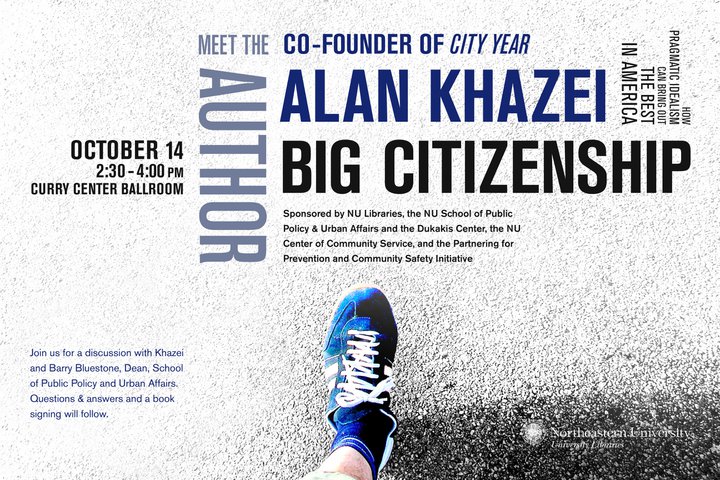Big Citizenship Discussion with Co-Founder of City Year, Thurs. Oct 14
Alan Khazei, co-founder of City Year and CEO/founder of Be the Change, Inc., has written a new book — Big Citizenship — and is coming to campus to discuss the book and highlight Northeastern students who are Big Citizens.
“‘Each time a man stands up for an ideal, or acts to improve the lot of others,’ Robert Kennedy famously wrote, ‘he sends forth a tiny ripple of hope.’ No one better exemplifies the truth of these words than Alan Khazei, the co-founder of City Year. In this stirring call to arms, Khazei lays out a path for the renewal of America, which should provoke conversation, debate and action.” —Doris Kearns Goodwin, Pulitzer Prize–winning author and presidential historian.
Who: Alan Khazei with Barry Bluestone
Where: Curry Student Center Ballroom
When: Thursday October 14th, 2:30-4:00pm
What: Discussion and Book Signing with Alan Khazei!!
